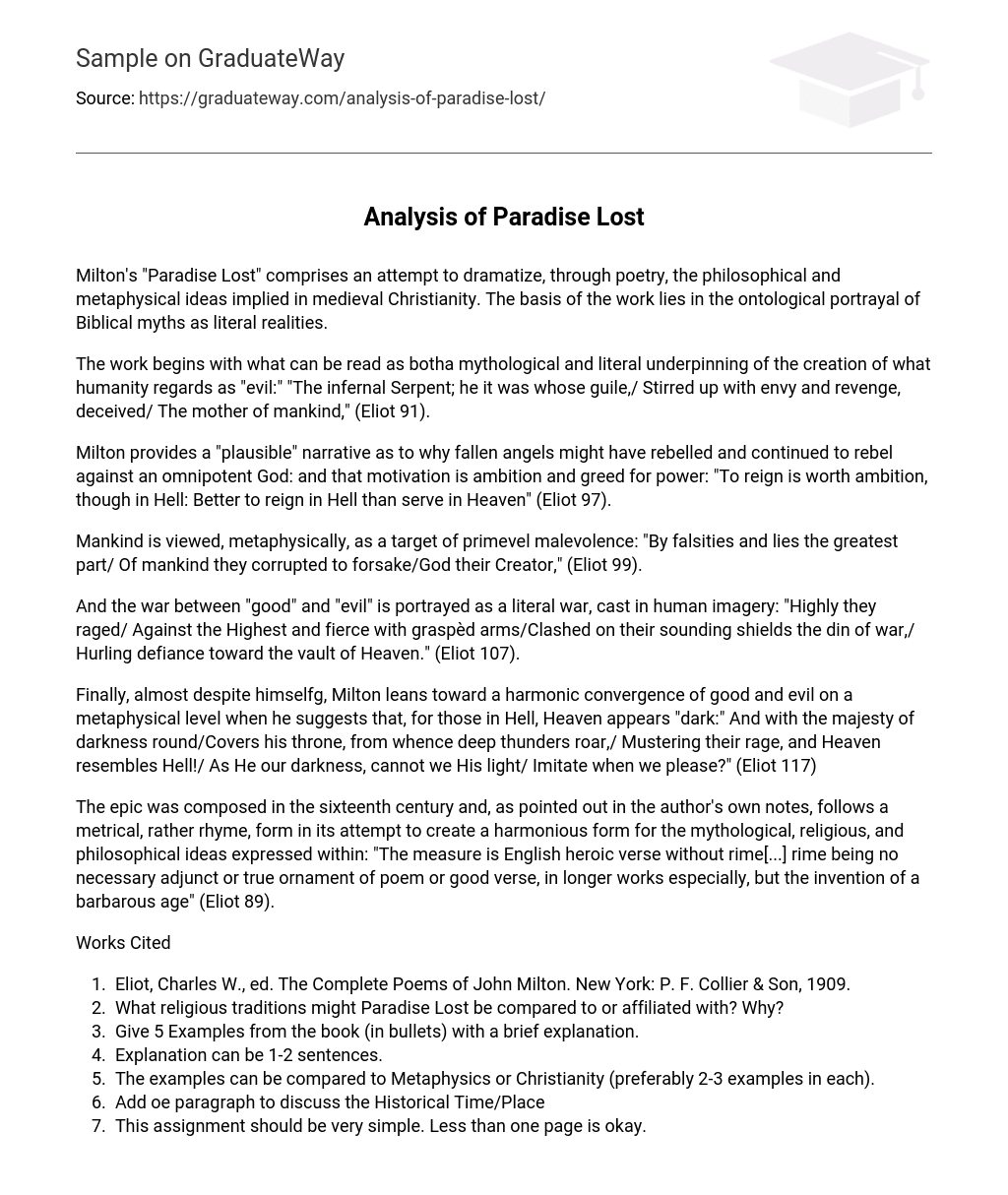Milton’s “Paradise Lost” comprises an attempt to dramatize, through poetry, the philosophical and metaphysical ideas implied in medieval Christianity. The basis of the work lies in the ontological portrayal of Biblical myths as literal realities.
The work begins with what can be read as botha mythological and literal underpinning of the creation of what humanity regards as “evil:” “The infernal Serpent; he it was whose guile,/ Stirred up with envy and revenge, deceived/ The mother of mankind,” (Eliot 91).
Milton provides a “plausible” narrative as to why fallen angels might have rebelled and continued to rebel against an omnipotent God: and that motivation is ambition and greed for power: “To reign is worth ambition, though in Hell: Better to reign in Hell than serve in Heaven” (Eliot 97).
Mankind is viewed, metaphysically, as a target of primevel malevolence: “By falsities and lies the greatest part/ Of mankind they corrupted to forsake/God their Creator,” (Eliot 99).
And the war between “good” and “evil” is portrayed as a literal war, cast in human imagery: “Highly they raged/ Against the Highest and fierce with graspèd arms/Clashed on their sounding shields the din of war,/ Hurling defiance toward the vault of Heaven.” (Eliot 107).
Finally, almost despite himselfg, Milton leans toward a harmonic convergence of good and evil on a metaphysical level when he suggests that, for those in Hell, Heaven appears “dark:” And with the majesty of darkness round/Covers his throne, from whence deep thunders roar,/ Mustering their rage, and Heaven resembles Hell!/ As He our darkness, cannot we His light/ Imitate when we please?” (Eliot 117)
The epic was composed in the sixteenth century and, as pointed out in the author’s own notes, follows a metrical, rather rhyme, form in its attempt to create a harmonious form for the mythological, religious, and philosophical ideas expressed within: “The measure is English heroic verse without rime[…] rime being no necessary adjunct or true ornament of poem or good verse, in longer works especially, but the invention of a barbarous age” (Eliot 89).
Works Cited
- Eliot, Charles W., ed. The Complete Poems of John Milton. New York: P. F. Collier & Son, 1909.
- What religious traditions might Paradise Lost be compared to or affiliated with? Why?
- Give 5 Examples from the book (in bullets) with a brief explanation.
- Explanation can be 1-2 sentences.
- The examples can be compared to Metaphysics or Christianity (preferably 2-3 examples in each).
- Add oe paragraph to discuss the Historical Time/Place
- This assignment should be very simple. Less than one page is okay.





